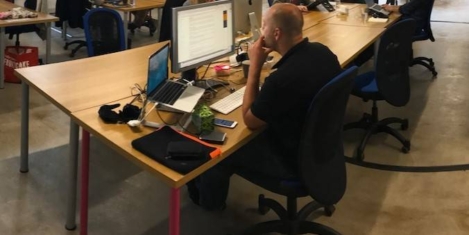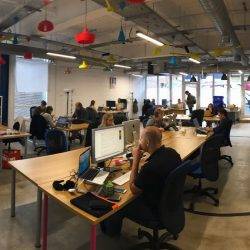January 15, 2018
Is there a link between creativity and depression?
 The link between creativity and depression or other mood disorders is something of a cliché, but one explored in a new meta-analysis published in the journal Perspectives on Psychological Science. The study from Christa L Taylor set out to discover whether there was any truth to the twin ideas of the tortured genius and of misery as an inspiration for creativity. Based on 36 studies into the relationship between mood disorders and creative thinking involving very high numbers of people, the report concludes that there are often strong correlations but that causation is somewhat harder to pin down. The diagnosis of mental disorders and the incidence of creativity is also complicated by the fact that researchers may often be unable to distinguish between the two.
The link between creativity and depression or other mood disorders is something of a cliché, but one explored in a new meta-analysis published in the journal Perspectives on Psychological Science. The study from Christa L Taylor set out to discover whether there was any truth to the twin ideas of the tortured genius and of misery as an inspiration for creativity. Based on 36 studies into the relationship between mood disorders and creative thinking involving very high numbers of people, the report concludes that there are often strong correlations but that causation is somewhat harder to pin down. The diagnosis of mental disorders and the incidence of creativity is also complicated by the fact that researchers may often be unable to distinguish between the two.













 Three in 10 business professionals think most of their meetings are pointless and nearly half (48 percent) of UK business people admit to having dozed off in a meeting claims global research by Barco ClickShare. The study revealed the true extent of our shared dislike for business meetings, which many respondents believe are poorly run at best or, at worst, completely pointless. Nearly a third of respondents globally said they found less than half of their meetings to be useful, while 30 percent also said they had dozed off in a meeting before. The UK, in fact, led the way in the asleep-in-meeting stakes, with nearly half (48 percent) of all UK respondents saying they’d fallen asleep in meetings. Checking emails and social media during meetings was also extremely common and another indication of disengagement and distraction. Over 70 percent of people said they regularly checked emails during meetings, while 37 percent access social media.
Three in 10 business professionals think most of their meetings are pointless and nearly half (48 percent) of UK business people admit to having dozed off in a meeting claims global research by Barco ClickShare. The study revealed the true extent of our shared dislike for business meetings, which many respondents believe are poorly run at best or, at worst, completely pointless. Nearly a third of respondents globally said they found less than half of their meetings to be useful, while 30 percent also said they had dozed off in a meeting before. The UK, in fact, led the way in the asleep-in-meeting stakes, with nearly half (48 percent) of all UK respondents saying they’d fallen asleep in meetings. Checking emails and social media during meetings was also extremely common and another indication of disengagement and distraction. Over 70 percent of people said they regularly checked emails during meetings, while 37 percent access social media.



















January 11, 2018
Culture shift needed to drive a better gender balance in property and construction
by Niki Fuchs • Comment, Property
(more…)